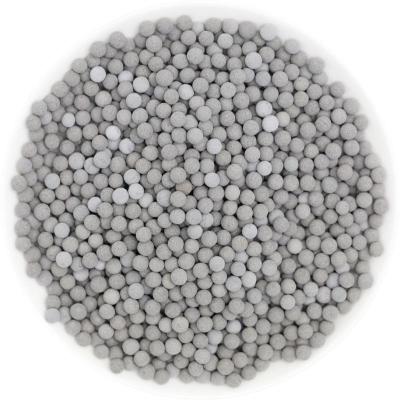How to remove chlorine in our tape water?
Chlorine in water is used as a disinfectant by many municipal water treatment facilities. Its primary purpose is to kill or inactivate harmful bacteria, viruses, and other microorganisms that can pose serious health risks to humans. In that sense, chlorine plays a crucial role in making drinking water safer and preventing waterborne diseases.
However, while chlorine serves an essential purpose in water treatment, there are some potential concerns about its presence in water:
Taste and Odor: Some people find that water treated with chlorine can have an unpleasant taste and odor, which may discourage them from drinking enough water.
Health Effects of Chlorine Byproducts: When chlorine reacts with organic matter in water, it can form disinfection byproducts (DBPs), such as trihalomethanes (THMs) and haloacetic acids (HAAs). Prolonged exposure to high levels of DBPs has been associated with an increased risk of certain health issues, including bladder cancer, kidney cancer, and reproductive problems. However, it's essential to note that these risks are generally associated with long-term exposure to high levels of DBPs, and the levels of DBPs in most municipal water supplies are well within safety guidelines.
Skin and Hair Irritation: Chlorine can be harsh on the skin and hair, especially at high concentrations. Prolonged exposure to chlorinated water during showers or swimming can lead to dry skin and hair damage.
Respiratory Irritation: Chlorine can be released into the air as a gas when hot water is used in showers, leading to respiratory irritation, especially for individuals with asthma or other respiratory conditions.
Sensitivity and Allergies: Some individuals may be more sensitive to the effects of chlorine and may experience skin rashes or other allergic reactions.
Shower filters are devices designed to remove impurities and contaminants from water, providing users with cleaner and healthier water during their showering experience.
calcium sulfite ceramic balls are a type of filtration media commonly used in these shower filters. They work by utilizing a chemical reaction to neutralize and remove certain impurities from the water, particularly chlorine. Chlorine is often added to municipal water supplies as a disinfectant, but it can cause dry skin, hair damage, and other skin irritations when present in high concentrations in shower water.
The chemical reaction between calcium sulfite and chlorine involves the reduction of chlorine into chloride ions, which are harmless to the skin and hair. The process can be represented as follows:
CaSO3 + 2Cl2 + 2H2O -> CaSO4 (calcium sulfate) + 4HCl
By removing chlorine through this reaction, shower filters with calcium sulfite ceramic balls can provide benefits such as:
Reduced skin irritation: Chlorine is a common irritant and can cause dryness, itching, and redness on the skin. By removing chlorine, these filters can help alleviate these issues.
Healthier hair: Chlorine can strip the natural oils from hair, leaving it dry and brittle. Filtering out chlorine can lead to softer and more manageable hair.
Better air quality: When hot water is used in showers, chlorine can vaporize and release chlorine gas into the air, which can be harmful to breathe. Filtering it out can improve the air quality in the bathroom.
Less chemical exposure: Reducing chlorine exposure during showers can be beneficial for individuals with sensitivities or allergies to chlorine.





